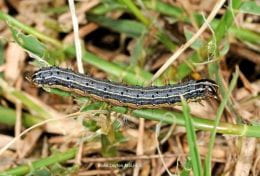“Feeling stressed” is different for each person. Are you familiar with how your body “feels” when you are stressed? Learning to recognize the early warning signs of stress is the first step in managing your stress.
Common signs of stress:
- Headache
- Tense muscles
- Stomach upset or distressed
- Difficulty sleeping or a desire to sleep more than normal
- Getting angry easily
- Trouble making decisions, concentrating or remembering things
- Irritable about little things
- Sense of frustration, anger
- Feeling discouraged, hopeless
- Conflict with family members
Managing stress and developing coping skills are important to your long-term health and well-being. Here are some ideas, but find what works for you.
Coping strategies may include:
- Get at least 7-8 hours of sleep a night
- Take regular 5- to 10-minute breaks throughout the day
- Pray, mediate or journal
- Engage in at least 20 minutes of physical activity every day
- Focus on factors you can control
- Reflect on and forgive yourself for mistakes
Resources
Farm Bureau #FarmStateOfMind –
https://www.fb.org/land/fsom
K-State Research and Extension –
browse for health and wellness resources
https://www.ksre.k-state.edu/
Kansas Department of Agriculture –
https://www.kansasagstress.org/
Project funded by the USDA National Institute of Food and Agriculture. Award # 2019-70028-30436
Kansas Department of Agriculture –
https://www.kansasagstress.org/
North Central Farm and Ranch Stress Assistance Center https://farmstress.org; 800-447-1985
Kansas Suicide Prevention Resource Center –
https://www.ksphq.org/; 785-841-2345
National Suicide Prevention Lifeline (NSPL):
800-273-8255 (TALK)
Crisis Text Line 24/7: Text “Home” to 741741
Project funded by the USDA National Institute of Food and Agriculture.
Award # 2019-70028-30436
Presented by K-State Research and Extension Stress Resiliency Team
And
Kansas Farm Bureau, The Voice of Agriculture
Printed with Permission





